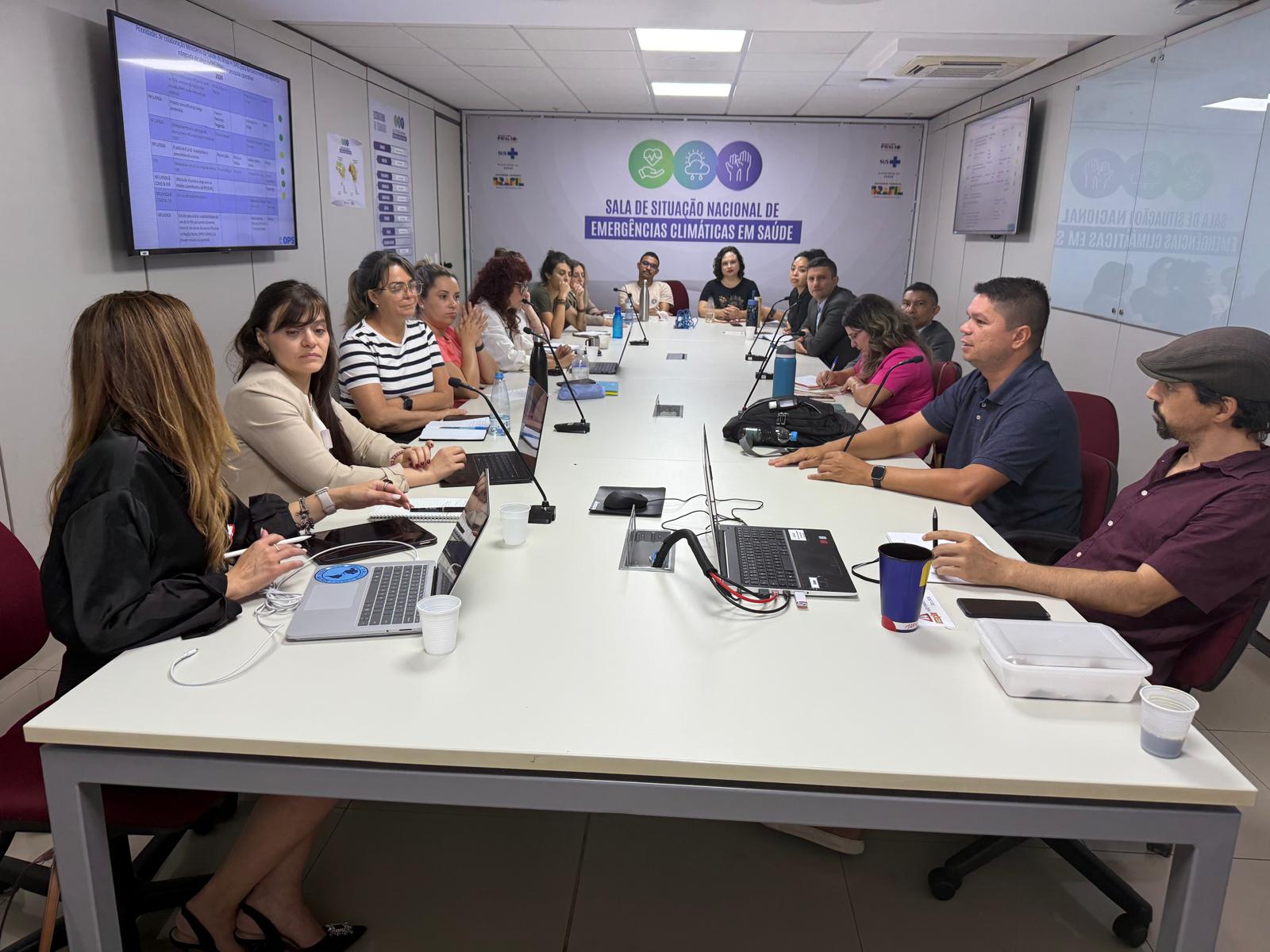
Brasilia, January 31, 2025 (PAHO) – From January 27 to 31, 2025, the PAHO/WHO Technical Cooperation Mission on strengthening influenza and respiratory virus surveillance was held in Brasília, Brazil, along with the Workshop on the Economic Burden of Respiratory Viruses. This initiative was promoted by the Pan American Health Organization (PAHO/WHO) in collaboration with the Ministry of Health of Brazil.
The main objective of the mission was to strengthen national technical capacities for analyzing the economic burden of respiratory diseases and using advanced assessment methodologies. Additionally, it advanced studies on the disease burden of COVID-19, influenza, and respiratory syncytial virus (RSV), consolidating data, validating results, and developing methodological approaches. Another key aspect was strengthening epidemiological and laboratory surveillance of these viruses by optimizing tools, integrating capacities, and reinforcing responses to respiratory epidemics and pandemics. As a result, the 2025 technical cooperation agenda was defined and aligned, prioritizing strategic activities in respiratory disease surveillance and response.
The event brought together professionals from the Brazilian Ministry of Health who lead operational research activities in surveillance and are interested in applying economic techniques to support health decision-making. During the mission, an intensive workshop was held where participants were trained in using economic tools to estimate the economic burden of respiratory viruses such as influenza. Key topics covered in the sessions included the classification of healthcare costs, methodologies for estimating direct and indirect medical costs, and the application of economic evaluations in health technologies. Additionally, participants conducted practical exercises to estimate the costs associated with these diseases in Brazil, providing a deeper understanding of the economic impact of respiratory viruses in the country.
During the five days of work, the experts analyzed aspects of integrated surveillance of respiratory viruses and the medical burden associated with RSV. In this context, a work plan was developed for the final phase of the study on the economic burden of respiratory viruses in the country.
This experience will provide essential information to estimate the costs associated with these diseases, facilitating evidence-based decision-making and guiding policies for the prevention and control of influenza and other respiratory viruses. The results obtained will be useful for other countries seeking to implement similar strategies.
PAHO/WHO and the Ministry of Health of Brazil reaffirm their commitment to health in the Americas, emphasizing the importance of strengthening epidemiological and laboratory surveillance. Brazil continues to demonstrate its strategic role in responding to respiratory diseases in the region, promoting innovative initiatives, and reinforcing international cooperation in addressing these challenges.




